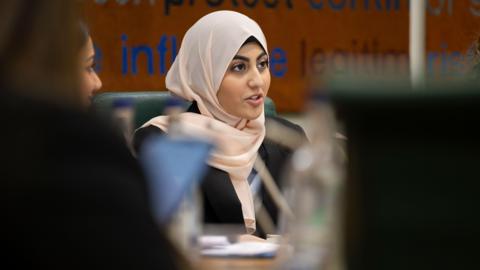The report welcomed measures in the Online Safety Act, but said the act was not robust enough to enforce minimum age limits on social media platforms, or to ensure children and young people would be protected from harmful content.
The Act puts more responsibility on social media companies to prevent their services being used for illegal activity, and to take down illegal content when it does appear.
Those measures have already been introduced. A government spokesperson said those were "just the beginning", and more were due to come into effect this year.
But the committee's report said the government should do more, including naming and shaming platforms which fail to comply with the rules, introducing an online safety scorecard to help young people avoid harmful content, and doing more research into the links between online and real-life violence.
While the committee said the act does not go far enough, its report said banning social media for under-16s was not the answer.
Many young people could find ways around age verification methods, and a ban would stop them accessing positive content on social media, the report said.
The committee instead called on the government to hold social media companies to account more effectively.
Members also said young people should be consulted more often in discussions around staying safe online, saying their experience and ideas for solutions were "vital to shaping real change".
"Responsibility is a very key aspect of our report," Wania said.
"And that's what we need from the government, from social media companies and from the education system.
"We don't need empty promises. We need them to take action, and action is the only way forward."
The Youth Select Committee is an initiative led by the National Youth Agency and supported by the House of Commons.
Additional reporting by Vanessa Clarke.
